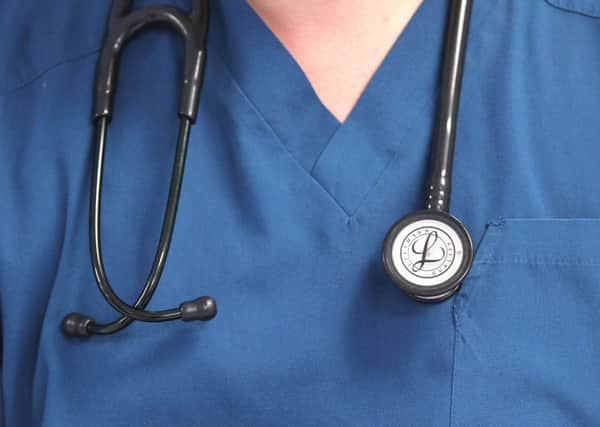Yorkshire patients face delays for routine surgery because they are obese or smoke


Latest figures reveal nearly 2,500 people from the Vale of York have been barred for up to 12 months from undergoing non-urgent operations since the measures were put in place early last year.
The curbs are among a series which NHS officials calculate saved more than £5 million in hospital treatment in parts of north and south Yorkshire in 2017-18.
Advertisement
Hide AdAdvertisement
Hide AdThe restrictions, which have been ruled out in West Yorkshire and Sheffield, came under renewed fire last night for widening gaps in access to routine treatment for patients across the region.
Figures show more than 100 people a month in the Vale of York are being told they face delays of a year for routine surgery if they are obese, or six months if they smoke, as part of measures which saved £2.7m in 2017-18.
Since restrictions were introduced in February last year, nearly 1,500 obese patients, 700 smokers and 200 people who are both obese and smoke have been told their surgery will be delayed unless they shed weight or give up smoking.
Figures show new restrictions on routine hospital operations in other parts of the region led to cuts in spending of £600,000 in Barnsley and nearly £300,000 in Doncaster during 2017-18.
Advertisement
Hide AdAdvertisement
Hide AdMore than £400,000 was saved in Scarborough and Ryedale over the 12 months to March as 350 patients faced delays because they were obese or smoked.
Officials in the Harrogate district were unable to say if they made planned savings of £700,000 during 2017-18 from similar restrictions as a number of measures to limit demand were in place which saw overall hospital referrals cut by five per cent.
In Rotherham, savings of £1.2m were made from new limits on nine routine operations including tougher thresholds for pain and disability suffered by patients before they can undergo surgery and six-month delays for obese people.
Spending on hip and knee replacements fell 16 per cent leading to cuts of £700,000 in the 12 months to March.
Advertisement
Hide AdAdvertisement
Hide AdProf Neil Mortensen, vice president of the Royal College of Surgeons, said the NHS should support obese patients to lose weight and smokers to stop smoking but restricting access to surgery was “the wrong way to go about it”.
“Over the last few years we’ve seen more and more clinical commissioning groups impose these sorts of policies to save money, effectively creating a postcode lottery for routine surgeries such as hip and knee replacements,” he said. “Surgery can dramatically improve a person’s quality of life. It is cruel to leave patients even just a month longer than necessary in pain and distress.”
Coun Jim Clark, chairman of North Yorkshire County Council’s health scrutiny committee, said local people were being penalised for the serious financial problems facing the NHS in the county.
He said: “It’s a postcode lottery. Short-term savings are being made by stopping operations but it will cost the NHS more in the longer run because patients’ conditions will only be more serious by the time they come to have surgery.”
Advertisement
Hide AdAdvertisement
Hide AdIn a statement, NHS Vale of York Clinical Commissioning Group said obese patients and smokers were more likely to suffer complications following surgery.
It added: “The thresholds have been received positively by patients who have welcomed the opportunity to optimise their own health.
“In some cases, losing weight or stopping smoking can relieve symptoms altogether helping patients to avoid any surgical intervention.”